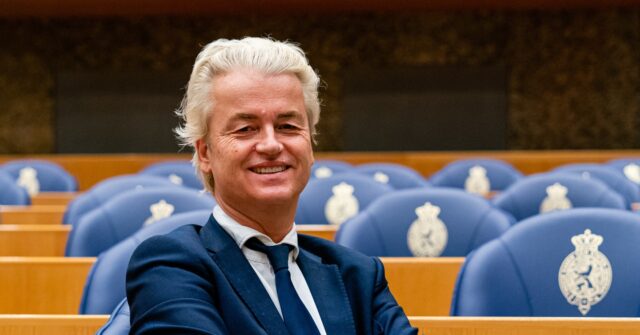The year 2024 is poised to be remembered as a significant turning point in political history, characterized by a sweeping victory for Donald J. Trump, who managed to secure not just the presidency but also the popular vote alongside control of both the Senate and House of Representatives. This victory is emblematic of a broader wave sweeping across the Western world, where traditional values and conservative perspectives are experiencing a revival. Citizens who have felt marginalized and overlooked—often derisively labeled as “deplorables”—are rallying in support of leaders who resonate with their concerns about pressing issues such as rising immigration, economic instability, and aggressive cultural shifts. In this atmosphere, major national elections across Europe have seen similar successes for patriotic parties in countries like the Netherlands, Austria, France, and beyond, signaling a robust movement toward conservatism.
Within this context, the Dutch Party for Freedom (PVV) has recently integrated into the government, reflecting a broader trend that prioritizes national identity and traditional values over the established progressive agenda. This shift is not only indicative of a change in political landscapes but also reveals a growing disregard for the progressive narratives surrounding issues like climate change and social justice. The PVV’s rise can be attributed to its dedication to addressing the genuine concerns of the populace, especially regarding illegal immigration and the perceived cultural indoctrination facing children today. As the political climate in Europe becomes more polarized, the PVV, alongside its international allies, looks toward the Trump administration for potential collaboration in enacting policies aligned with their vision of governance.
The year also saw Israel decisively strike against Hamas, dramatically changing the dynamics of Middle Eastern politics. After the horrific attacks on October 7, where many innocent lives were lost, one would have hoped for increased solidarity with Israel. Instead, Europe experienced a disturbing wave of anti-Semitism, challenging the long-held perception of safety for Jewish communities in Western cities. As many countries in Western Europe open their doors to large non-Western immigrant populations, the issues of anti-Jewish sentiment and safety for Jewish citizens have become acute concerns, starkly contrasting with situations in Eastern Europe, where such communities are more secure. This dangerous trajectory has ignited calls for urgent action from political leaders like those in the PVV, emphasizing the necessity to protect national identity and communal safety at all costs.
Visiting Israel reaffirmed the notion of its unique status as a democracy in a region plagued by authoritarianism and chaos. During his visit, the PVV leader recognized Israel as a remarkable success story, highlighting the contrast between the nation’s thriving democracy and the oppressive regimes surrounding it. The Israeli Arabs who are afforded democratic rights and representation were noted, challenging widespread narratives of oppression and underscoring the complexities of Middle Eastern peace dynamics. The real challenges to peace were identified as rooted in terrorist organizations like Hamas and broader anti-Israel sentiments fueled both by local and international players, rather than being associated with Israel’s policies. This perspective seeks to shift the narrative about Israeli actions and their implications for regional stability.
However, the rise of anti-Semitism in the West is not solely the product of immigrant populations; there is a troubling undercurrent of support for such sentiments among indigenous populations, particularly among progressive youths influenced by leftist ideologies. This phenomenon echoes sentiments expressed by past thinkers like Alexander Solzhenitsyn who articulated concerns about the West’s loss of will to defend its cultural and moral foundations. Solzhenitsyn warned that a decline in courage signals a critical moment for civilizations, and this reflection serves as a rallying cry for renewed bravery in facing both foreign challenges and internal decay. In addressing these issues, both historical and contemporary leaders argue for a cultural renaissance that values heroism and understanding of objective truth.
The current political climate, particularly in the West, is undergoing a renaissance of sorts, driven by a need for courageous voices willing to defend foundational values against the tide of what is termed “wokeness.” This cultural shift, pervasive in universities, media, and politics, threatens the very fabric of traditional civilization. Politicians alone cannot combat this spread; rather, a collective cultural shift led by individuals willing to stand firm in their beliefs is necessary. Figures like Donald Trump and movements aligning with his ideology can be seen as catalysts for this resurgence of courage and conviction, indicating an awakening among the populace who desire a return to core values.
In conclusion, the year 2025 calls for a new breed of heroism that stands against the onslaught of wokeness and cultural relativism. As Geert Wilders emphasizes, the restoration of sanity, courage, and clarity in political and cultural discourse is paramount. With the successes of conservative parties in 2024, there is renewed hope for the future, one that champions the flourishing of societies grounded in truth, stability, and respect for their own histories and identities. The journey ahead requires collective action among citizens who reject the status quo and instead decide to forge a path toward a more principled and courageous society, shaping a world free from the shackles of confusion and moral ambiguity that has characterized recent history.

